Precarity and other Feminist Philosophical Issues

Interview by Richard Marshall.
(Art: Dorothea Tanning)
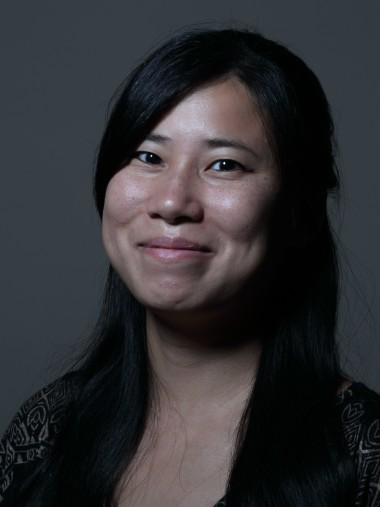
'Precarity is the effect of decades of neoliberalism, by which I mean two things: on the one hand, a set of economic policies (e.g., the privatization of public services, deregulation of markets and labor, austerity measures) reviving certain tenets of classical laissez-faire liberalism, and on the other, a cultural and moral ethos of so-called “personal responsibility” in which society is seen as no more than an assortment of individuals who (ought to) gain the rewards and bear the costs of only their own and not others’ actions.'
'Sometimes I feel more worried about the survival of the discipline of philosophy itself than about women in it, though I certainly don’t mean to discount the significant hurdles that women continue to face, and I don’t think progress is linear much less guaranteed.'
'I think there could be (defeasible) gender-specific reasons for women to work on certain subjects. For instance, insofar as men are less likely to do important kinds of critical, excavatory, or legitimizing work on women-focused subjects, there might be reason for women to do it if no one else would.'
'We really can’t talk about race without also talking about class (because they are deeply entangled). Getting into the academy in the first place is harder when you’re poorer or grew up in working-class communities, as is more likely for people of color — much less getting into a discipline like philosophy which is viewed as impractical or detached from real-world problems.'
'I am a big believer in what people like Laurence Thomas and Avery Kolers have called “moral deference,” that is, in (at least sometimes) deferring to others whose social vantage points give them greater access to certain kinds of social knowledge.'
'Implicit bias is only one instance of a very, very well-established literature in social and cognitive psychology on the automaticity of our cognition, i.e. the fact that much of our information processing is not self-transparent or under our direct, conscious control. Given that this is the case, then of course racial cognition will also have some of these features.'
'What makes individuals responsible is not (just) our causal connection to injustice, but the social roles we occupy that collectively constitute social structures (and a fortiori unjust ones).'
'We just can’t make any wholesale pronouncements about pornography, just like we can’t reasonably draw conclusions about whether, e.g. books are good or bad. Instead, we have to critically evaluate each pornographic token on its own, even though we might come away with very mixed results or multiple competing interpretations.'

Robin Zheng's research ranges across ethics, moral psychology, feminist and social philosophy, focusing mainly on issues of moral responsibility, gender, and race. Here she discusses precarity, the underrepresentation of women in academic philosophy, her guarded optimism about the situation, whether women should work on women focused subjects, the toxic debate between trans and feminists, the dire number of non-white philosophers in the acadamy, racial fetish, race and pornography, implicit bias, where structure meets agency and the Role-Ideal model.
3:AM: What made you become a philosopher?
Robin Zheng: When I was an undergraduate, I knew I wanted to major in physics along with a humanities discipline, either English or philosophy. I eventually settled on philosophy because I thought I couldn’t write beautifully enough to talk about literature. And by the time I got my degree I realized I’d hit the limits of my abilities and interest in physics.
Philosophy appealed to me because I could study problems that arise in literature and the arts, but with the rigor and systematicity I loved from math andscience. Once I discovered that it is also a fundamentally creative endeavor — something that’s become even clearer over time — I knew that it was what I wanted to do with my life.
3:AM: You’re a philosopher who is working in the area of feminist philosophy and ethics. One of the obvious things about academic philosophy is that there are very few women working in departments, and alongside that issue there’s another issue that you’ve recently written about, and that is women and contingent labour n the academy. Let’s start there. What are the figures regarding the use of female contingent labour and why is precarity a feminist issue?
RZ: I argue that academic precarity is a feminist issue because it is an instance of the “feminization of labor,” a term that can refer to two different things: 1) the increase of women in the workforce, and 2) the way that working conditions historically associated with women’s work — work that is low pay, low prestige, piecemeal and impermanent — gets generalized to all workers. So, looking first at the data about women in academia, we find that they are overrepresented amongst contingent faculty, even though, as you point out, academic positions overall are still dominated by men. A 2016 report by the TIAA Institute found that, in the U.S., there’s been a 64.6% increase in the total headcount of women and minorities between 1993-2003, but the increase was 7-10 times greater in non-tenure track positions than tenure-track positions. The European Commission SHE figures showed that, across the E.U., women are on average 1.48 times more likely to be in precarious positions than men. And in Australia, an ARC-funded paper by Strachan et al. (2016) reported that the majority (54-57%) of casual staff are women, and a larger percentage of women (47%) hold fixed-term contracts than of men (42%). So these gender inequities already provide some cause for feminist concern.
Secondly, precarity — the problem of not being able to secure stable, well-paid employment — has spread beyond women to academic workers in general. According to the Delphie Project, the relative proportion of tenure-track to non-tenure track positions n the U.S. was 78% vs. 22% in 1969; by 2011 it was almost completely inverted to 30% vs. 70%. And these trends show no sign of stopping, not just in the U.S. but also in Canada, Australia, the UK, and Europe (Robinson 2006).
In my article, I argue that part of this casualization of work is importantly related to gendered ideologies — which is the other reason that precarity is a feminist issue. I discuss two myths, the myth of meritocracy and the myth of work as its own reward. The myth of meritocracy is the idea that academic job market outcomes are determined primarily by different levels of individual ability; the notion that women lack scholarly merit (e.g. intelligence, talent, motivation, commitment) goes back, of course, all the way to Aristotle if not earlier. The myth of work as its own reward is the idea that some work is so intrinsically rewarding that it shouldn’t require compensation — think of all the times you hear academics exclaiming, ‘I can’t believe I get paid to do this!’ (This also has gendered origins, in the “carework” of cooking, cleaning, and childrearing that women are supposed to do out of love rather than money, and to find intrinsically gratifying due to their purportedly natural nurturing instincts.) I argue that this combination makes us (academics) complicit in the casualization of academic labor because it distracts us from working towards structural solutions.
I further argue that these gendered myths and the casualization of academic labor are mutually reinforcing. Take, for instance, the myth of meritocracy. Coming from one direction: academics don’t challenge the two-tier system as unjust because they buy into the myth. But coming from the other, the two-tier system is fundamentally set up so that only a tiny handful ‘wins’ while the majority ‘loses,’ with the consequence that anyone who is disadvantaged by their gender (or other social conditions) is automatically much more likely to be shunted off the tenure track. This then feeds back into the myth that women are less talented, etc. So I think that feminists, who have done so much amazing work to counter negative gender stereotypes, also have strong reason to work against casualization.
3:AM: Is this issue of precarity worse in philosophy for women than in other areas of the academy?
RZ: I think the statistics make pretty clear that there are huge structural forces at play here, much bigger than anything going on in philosophy alone. Precarity is the effect of decades of neoliberalism, by which I mean two things: on the one hand, a set of economic policies (e.g., the privatization of public services, deregulation of markets and labor, austerity measures) reviving certain tenets of classical laissez-faire liberalism, and on the other, a cultural and moral ethos of so-called “personal responsibility” in which society is seen as no more than an assortment of individuals who (ought to) gain the rewards and bear the costs of only their own and not others’ actions. There was a time when tenure was viewed as a means of protecting the integrity of academic research conceived of as a public good; but under neoliberal conditions, it’s now mostly thought of as private incentive used to reward individuals.
That being said, there is some reason to think that the myths I mentioned might have a stronger hold in philosophy than in other disciplines. As followers of Socrates — who famously opposed the Sophists in part because they made money off of their teachings — we might be especially inclined to believe that our work should be done out of love of truth, justice, and knowledge, and hence that wanting (more) money for it is unimportant or distasteful; in other words, we philosophers may be especially liable to accept the myth of work as its own reward. Furthermore, Sarah Jane-Leslie and others have shown that philosophers are especially prone to believing that philosophical success requires fixed innate ability or talent, which of course bolsters the myth of meritocracy.
3:AM: Compared to other areas women in philosophy seem poorly represented. What’s the situation as you see it – and what do you think are the causes of this? Is it something to do with the subject itself – that it might be seen as a boutique subject – or something to do with its content – lots of dead white men etc – or something to do with the culture of how philosophy is done – too aggressive, is seen as being the preserve of male genius etc etc – or is it just an amplification of general societal structures – or is there something else going on?
RZ: There’s been quite a lot of empirical work on this in recent years, with a mixed bag of findings. I myself am partial to Louise Antony’s “perfect storm” style of explanation, which encompasses all of what you mention — the idea being that more general mechanisms of gender discrimination found in society as a whole just happen to form a particularly potent mix once combined with factors distinctive to philosophy.
3:AM: Are there things that are being done that are successfully addressing the issue – are you optimistic about the future for women in philosophy?
RZ: I am optimistic, though not unreservedly so. Sometimes I feel more worried about the survival of the discipline of philosophy itself than about women in it, though I certainly don’t mean to discount the significant hurdles that women continue to face, and I don’t think progress is linear much less guaranteed. It’s worth mentioning that I believe the influence of women (and other marginalized social groups) on philosophy is and will continue to be a significant force in rescuing it from powerful interests whose overriding concern with financial profit doesn’t at all include and can even clash with humanistic education and critical thinking. As areas like feminist and critical race philosophy come into their own, they help demonstrate the value of philosophy to increasingly diverse publics and populations of students.
In line with that, I feel optimistic given the increasing evidence of 1) changes in the academic content of philosophy, and of 2) a much, much greater public awareness and self-reflexivity about how social inequality is reproduced through disciplinary practices. I think that the relatively recent penetration of social and political concerns into mainstream, so-called “core” areas — via topics such as social ontology (metaphysics), epistemic injustice and oppression (epistemology), and slurs (philosophy of language) — has been absolutely key here, though of course this kind of work has been around for a very long time in less valued parts of the discipline. Once you start seeing job searches for specialists on gender and race, that for me is indicative of amaterialchange in how the discipline has expanded.
I see these changes as a sign that decades of work and activism from the generations before me are finally paying off. By “work” I mean the production of philosophical research, e.g. on issues of power, exploitation, stereotyping, and discrimination along the axes of gender, race, class, sexuality, disability, and so on. By “activism” I mean all the work that’s been put into consciousness-raising, mentoring, building networks and programs and institutions that make it possible for women and other historically underrepresented groups to do their work better. I think these go hand in hand, and both are necessary for continuing to build a better future for philosophy.

3:AM: I was at a philosophy conference last year when a serious woman philosopher criticised another woman philosopher for working on a topic whose focus was a male philosopher – Sartre! She thought this was a problem. Do you think it’s good that women can work on any subject they want to in the academy or should women work on women focused subjects?
RZ: Since I didn’t witness the exchange in question, I obviously can’t comment on this particular situation. But I think there could be (defeasible) gender-specific reasons for women to work on certain subjects. For instance, insofar as men are less likely to do important kinds of critical, excavatory, or legitimizing work on women-focused subjects, there might be reason for women to do it if no one else would. Or, given that topics pioneered by marginalized groups sometimes get co-opted by members of more powerful groups who subsequently receive greater recognition for it, there might be reason to ensure that quality work on certain gender-related subjects continues to be produced by women. Or, I could imagine that working on a particular male philosopher’s work might have the effect of hiding or exculpating his sexist behavior. And so on.
But on the whole, I think that there are many different ways of fighting gender inequality, and women who work on unrelated areas of philosophy are also making important contributions by doing so.
3:AM: There’s been a quite toxic discussion going on in philosophy circles which very strangely has morphed into a situation where trans people and feminists are locking horns. I say it’s strange because I’d have thought the worse culprits of sexism and anti trans and anti women thinking are men! But men seem to have got out of this debate pretty much unscathed. What’s your take on this situation and how can this toxicity be drained out so philosophical discussion can be resumed without the on-line shaming and threats?
RZ: I’m glad you asked, as I’m just starting on some new work on solidarity and coalition-building that looks at several of these recent debates. To begin with, though, we shouldn’t forget that feminism has always had internal divisions — think about how ‘toxic’ the Sex Wars were in the 1980s! — and that this is something to be expected, given different interests at play and the difficult nature of the problems feminists of all stripes are trying to address. I do think it’s an incredibly unfortunate state of affairs, given that there’s so much overlap in the oppression faced by women and by trans people. As it happens, I suspect this might be precisely one of the reasons behind such bitterness, because insofar as you have higher expectations from people who should be your allies, you’ll feel even greater disappointment and anger when they don’t live up to them. I also think that part of why things blew up so severely is because of other, more hostile forces at play: the wider conservative right, reactionary elements within philosophy, etc. which aggravate the toxicity by gleefully piling on. It can be very hard to work through serious internal disagreements while also being under attack from the outside.
In any case, my read on the situation is that it’s not so different from other conflicts that have emerged within feminism around accommodating the multiplicity of other ways (e.g. race, class, disability) people are oppressed. In this particular case, I think it’s most helpful to understand that we are in what Cheshire Calhoun calls an “abnormal moral context,” that is, a context in which some forms of moral knowledge (i.e. about trans issues) have developed among specialists faster than they can be disseminated to the wider epistemic community.
My own experience of the Hypatia affair, for instance, was as follows. Initially, I confess, I didn’t completely grasp the force of the arguments being made in the open letter. But, knowing that this was an area that I knew little about, I had faith that there must be good reason why so many people who did know about it were so upset. Sure enough, in the course of reading several other views (which I am very grateful that others put in the time and effort to explain), I learned a number of basic facts I simply hadn’t known. Rereading the very same arguments, I found them much more urgent and compelling in light of further background information.
I certainly don’t have any surefire solutions for the situation (especially since I think that anonymous threats and shaming are probably endemic to the online medium itself). But I am a big believer in what people like Laurence Thomas and Avery Kolers have called “moral deference,” that is, in (at least sometimes) deferring to others whose social vantage points give them greater access to certain kinds of social knowledge. I recommend trying to always be mindful of where you have expertise and where you don’t, operating with a presumption in favor of those whose oppression is least well-understood, and really ‘doing your homework’ before getting involved. Because even when criticism is called for, it makes all the difference where that disagreement is coming from: it should come from a place of solidarity, i.e. from an overarching commitment to social transformation rather than siding with the status quo.
3:AM: Of course, if the situation regarding women in academic philosophy is pretty dire, the situation regarding non-white philosophers in the academy is even worse. Are the reasons for this similar to those you think are causing the lack of women?
RZ: Yes, I think there are similar reasons — for instance, there are just as many negative stereotypes about intelligence, ability, etc. associated with people of color as with women. But there’s also more going on here: we really can’t talk about race without also talking about class (because they are deeply entangled). Getting into the academy in the first place is harder when you’re poorer or grew up in working-class communities, as is more likely for people of color — much less getting into a discipline like philosophy which is viewed as impractical or detached from real-world problems. Another factor here is that the many rich traditions of non-Western and/or non-White philosophical thought are better appreciated in disciplines outside of philosophy, e.g. literary, cultural, and area studies. As Black feminists like Anita Allen and Kristie Dotson have asked, why spend your days fighting in philosophy if it’s much more livable in other disciplines? The answer seems clear.
3:AM: You’ve written about racial fetishes and whether they’re racist or not. One common defence is the ‘mere preference argument’ that says that racial fetishism is morally unobjectionable if it is merely an aesthetic or personal preference. You don’t think this is a good argument but nevertheless you don’t think just saying the preference is based on a racial stereotype is a good enough counter do you? Can you flesh out what you mean by the term ‘racial fetish’ and then explain why the push-back against the mere preference argument fails?
RZ: I use the term “racial fetish” to refer to an exclusive or near-exclusive preference for sexual intimacy with members of a racial outgroup. That distinguishes it from “racial endogamy,” which is a preference for members of one’s own race. According to the mere preference argument, there’s nothing problematic with racial fetishes that are “merely” preferences for certain racialized phenotypes, because this is no different from ordinary unproblematic preferences for non-racialized phenotypes like hair color or body shape.
The standard response is to argue that racial fetishes are always grounded in racial stereotypes, and hence morally problematic for that reason. I think this is probably true, but I recognize that it’s at least theoretically possible for certain individuals to have racial fetishes that were not caused by or based in stereotypes. (This is what defenders of the mere preference argument focus on trying to show.) But I wanted to show that even these fetishes are morally objectionable, so I needed a new argument.
3:AM: So how do you argue against racial fetishes?
RZ: What I do is shift away from debating the causes of racial fetish to looking at its effects, particularly its effects on the targets of the fetish. First, I argue that it’s harmful to specific individuals because it homogenizes and otherizes them, which burdens them with having to deal with doubts about whether they are being sought out merely for their race. Second, I argue that racial fetishes are harmful because their existence reinforces a pernicious system of racial classification by implying that there’s something (essentially) different about people of distinct races which explains those preferences. It’s this latter type of harm that especially distinguishes racial fetishes from more innocuous phenotypic preferences that aren’t attached to oppressive categories.

3:AM: You’ve also written about the risks and rewards of race and pornography. What are these and at the end of it all should we celebrate or decry the use of pornography on the basis of its racial/ist representations?
RZ: My ultimate conclusion regarding the anti-pornography debate is that we just can’t make any wholesale pronouncements about pornography, just like we can’t reasonably draw conclusions about whether, e.g. books are good or bad. Instead, we have to critically evaluate each pornographic token on its own, even though we might come away with very mixed results or multiple competing interpretations. This is very clear in the case of racialized representations. Scholars have shown that women of color are able to exercise their agency to resist oppression through their performances, to challenge norms of respectability and claim pleasure for themselves, and to reshape overly narrow standards of beauty and desirability. But they are almost always doing so under significant constraints (e.g. material need, market demands, exploitative employers), they can’t guarantee that they will be interpreted as they intend to be, and they risk having their racial difference be either fetishized or trivialized as a mere variation (‘adding spice’) on whiteness. In sum, I think that for the foreseeable future pornography will remain morally problematic in various ways, but that we shouldn’t be too moralistic in a world where pleasure — especially for the oppressed — can be hard to come by, and we should use it as far as possible as a tool for transformation.
3:AM: You looked at alleged implicit bias and argued that it required seeing people as lacking attributability for actions caused by implicit bias but that they still be held accountable for them. And this in turn meant leaving aside appraisal-based forms of moral criticism such as blame and punishment in favour of non-appraising forms of accountability. Can you sketch for us your thinking here – and does the findings at the University of Wisconsin in Madison Harvard on the Implicit Association Test measuring implicit bias mean that the idea of implicit bias is now rather dead in the water and nothing to concern us with?
RZ: No, I don’t think recent findings are really damning, and I suspect that implicit bias research has at least in part been targeted for reactionary political reasons. (To be fair, implicit bias has also been widely discussed by people supportive of it in ways that tended to misrepresent or outstrip the actual findings.) After all, implicit bias is only one instance of a very, very well-established literature in social and cognitive psychology on the automaticity of our cognition, i.e. the fact that much of our information processing is not self-transparent or under our direct, conscious control. Given that this is the case, then of course racial cognition will also have some of these features. We can safely draw that conclusion even if we can’t measure it perfectly or derive specific predictions of individual behavior (and we shouldn’t expect to!). That’s what makes the phenomenon interesting to philosophers, and it’s enough for it to be useful for thinking about broad strategies for fighting inequalities.
My own approach is that once we accept this much more complicated picture of how our minds work, we should accordingly develop more complex moral concepts that can do justice to this complexity. In particular, as you mention, I’ve argued that we should distinguish between attributability and accountability for actions caused by implicit bias. While other have conceptualized the distinction in different ways, I think it’s most useful to think of attributability as a fundamentally metaphysical notion concerning which actions count as exercises of our agency in such a way that they reflect on us, i.e. which actions can justifiably be used to appraise people as praise- or blameworthy. It wouldn’t be justifiable to judge a person blameworthy for knocking over a vase by total accident, or if someone else shoved her into it, because the vase-breaking in those cases wouldn’t really count as an exercise of her agency. But, she could still be held accountablein the sense that it would still make sense for her to pay for it.
Accountability is a moral and political matter of how best to distribute the burdens of redressing harm. It stems from the observation that even if no one is at fault, there are harms that still need to be dealt with. So it can be appropriate to assign a person some of the corresponding burdens even if she in no way exercised her agency (wrongly) to bring them about. In the case of implicitly-biased action, then, we can leave aside appraisal-based ascriptions of attributability (e.g. judging that a person is a racist or sexist) while still adopting non-appraising accountability responses like compensating victims or changing future policies.
3:AM: Your work is obviously about injustice and structural injustice in particular. The issue of where structure meets agency is where you have developed a model of answering the question about who is responsible for structural inequalities. Can you first say what alternatives to your own model are current at the moment?
RZ: Sure — though it might help to say a bit first about what makes an injustice “structural”. I think the key idea, which has been developed by philosophers like Iris Marion Young and Sally Haslanger, is that deep social inequalities are not best explained by appealing to individuals’ bad actions or attitudes, because individual choices are highly constrained by the set of options available to them — that is, by the social structures within which they make those choices. So, for instance, it’s not just racist real estate agents or landlords who contribute to racial segregation, but also well-intentioned parents seeking the best school district for their kids. The real problem here is the way that neighborhood taxes are collected in such a way that some schools are much better resourced than others, along with historical injustices that excluded people of color from affordable housing, a tight economic market in which early schooling significantly affects life chances, etc. That’s structural injustice: an interlocking system of social, political, economic, and cultural institutions within which the everyday choices of ordinary decent people have the unintended effect of reinforcing inequality.
Broadly speaking, there have been two main ways of thinking about responsibility for these injustices. On what I call the “aggregate approach,” the idea is to find a more powerful collective agent — the state, corporations, etc. — that possesses enough features of moral agency to be held responsible in the same way that do individual moral agents. On the “individualistic approach,” the strategy is to find some independently plausible moral principle governing individual action, e.g. that victims of theft are owed compensation or that we have duties to assist the needy, and scale it up to the case of larger injustices.
I think the best way to think about it, however, is using a more recent “structural” approach, which takes individuals to be responsible for injustice in virtue of their relations to unjust structures. This approach is distinctive because it doesn’t pick out one guilty agent or group of agents (or even a collective agent) while exonerating everyone else. Instead, everyone who participates in unjust structures bears some responsibility. Iris Marion Young’s Social Connections Model is the most prominent theory of this type: she argues that all individuals who are causally connected to unjust social-structural processes bear responsibility for collectively organizing with others to transform them.

3:AM: And what is your alternative model, and why is it preferable to the alternatives?
RZ: My proposed alternative to Young’s Social Connections Model is the Role-Ideal Model, which is very similar in that it is also a structural approach, but distinct in identifying a different basis for individual responsibility. On this model, what makes individuals responsible is not (just) our causal connection to injustice, but the social roles we occupy that collectively constitute social structures (and a fortiori unjust ones). I think the main advantage, as you mentioned earlier, is that social roles have long been conceptualized as the site where ‘structure meets agency.’ This gives us a much more precise way of understanding the relationship between an individual and a social structure.
The basic idea is this. Social roles are bundles of expectations that apply to us in virtue of our role-determined relationships with others. A teacher, for instance, is expected to behave in certain ways with respect to her students, her colleagues, her school principal, and so on. Anyone who occupies the role of ‘teacher’ can be expected to behave in those ways. That role is what makes it intelligible and appropriate for her to go up to the front of a room and give out instructions to a bunch of other people; and the role of ‘student,’ likewise, is what makes it sensible for them to listen to her. Social roles are enforced by a range of ‘sanctions,’ which can be positive or negative, internally or externally imposed: a teacher might receive an award if she does well or angry emails if she doesn’t (external), and she might herself feel pride or guilt (internal). So, we can think of social structures as being built up out of all these different social roles: teachers, firefighters, parents, neighbors, citizens, men, women, etc.
What the Role-Ideal Model claims is that when a social structure is unjust, everyone who occupies a role that helps to constitute that social structure is thereby responsible for performing their role better. Specifically, they are responsible for using the resources, powers, and privileges provided by that role to push the boundaries of the role. For instance, occupying the role of ‘teacher’ provides you with, say, the authority to encourage your students to adopt gender-neutral language in their writing, or the right to advocate more inclusive policies in front of the school administration: your role puts in you in the right sort of relationships with these other people to do these things. Now, in doing so, you are pushing the boundariesof the role by influencing how others carry out theirroles (as students, administrators, etc.). Changing yourrole-specific expectations of how they should act in itself alters the social constraints on their decisions, making it a bit easier for them to do the right thing and a bit harder to avoid doing it.
The Role-Ideal Model thus provides a way of understanding how structural transformation is possible — it can occur when a large number of individuals collectively push the boundaries of their roles in the same direction. The model also specifies more clearly what sorts of actions it is reasonable for individuals to undertake. That’s because for every role, there is some finite, intuitive, and salient set of actions associated with it. As a teacher, I have the resources, powers, and privileges to push boundaries that contribute to transforming our education system, whereas a doctor is best positioned to do so with respect to the medical system. Parents can push boundaries by raising their children with socially progressive attitudes and values, and when not (or as part of) working or raising kids, etc., citizens and residents can do so by attending public demonstrations, signing petitions, or contacting their local representatives — these are all actions that make sense for them and that they are empowered to do in virtue of their roles.
3:AM: And for the readers here at 3;AM, are there five books you can recommend to us that will take us further into your philosophical world?
RZ: Always a hard question! But here goes.
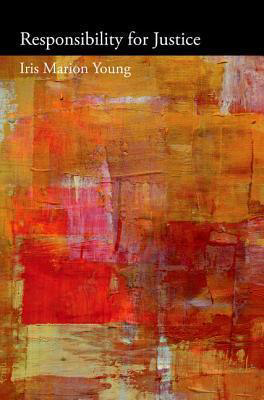
At the top of my list is definitely Iris Marion Young’s Responsibility for Justice: a must-read for understanding structural injustice.
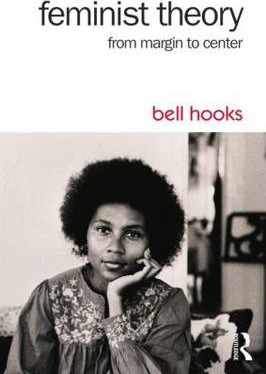
Next I would say bell hooks’ Feminist Theory: From Margin to Center, which is a shining exemplar of the kind of feminism I most admire.
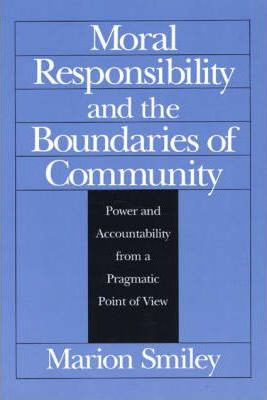
Marion Smiley’s Moral Responsibility and the Boundaries of Community: Power and Accountability from a Pragmatic Point of View is one of my favorites on moral responsibility.
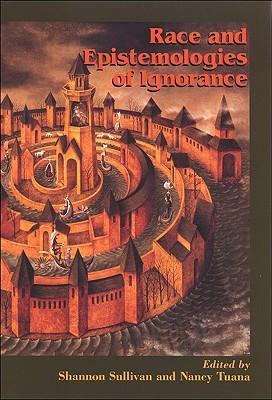
Some of the most life-changing philosophy I ever studied is in the tradition offeminist epistemology and philosophy of science: one book I’d recommend is Shannon Sullivan and Nancy Tuana’s volume on Race and Epistemologies of Ignorance.

And finally, a book that I couldn’t even get through the first time I tried reading it, but now can’t imagine doing without: Paolo Freire’s Pedagogy of the Oppressed.

ABOUT THE INTERVIEWER
Richard Marshall is biding his time.
Buy his new book here or his first book here to keep him biding!
End TimesSeries: the first 302